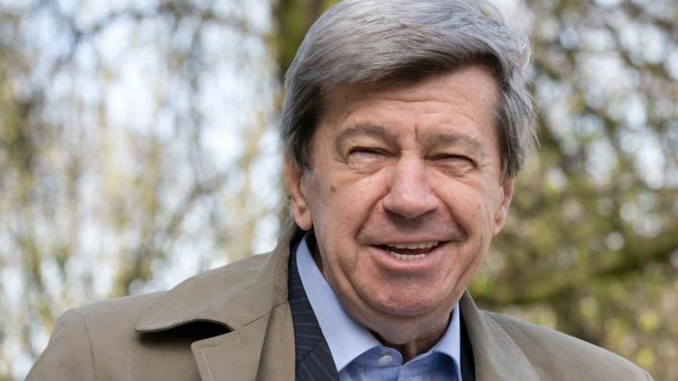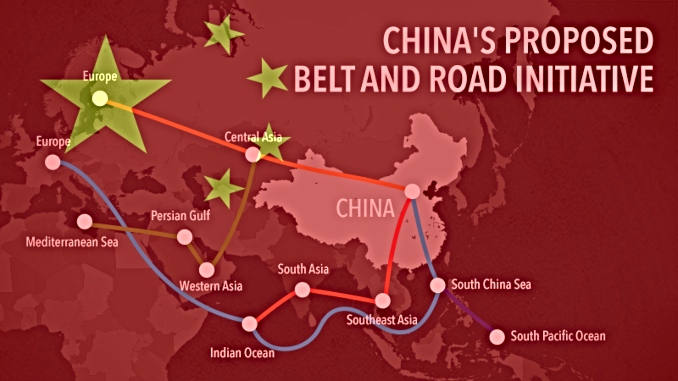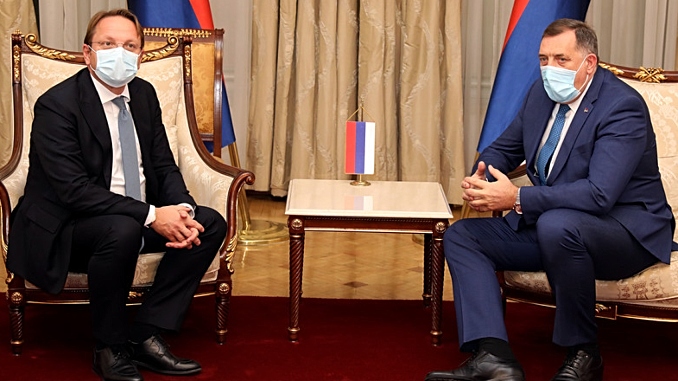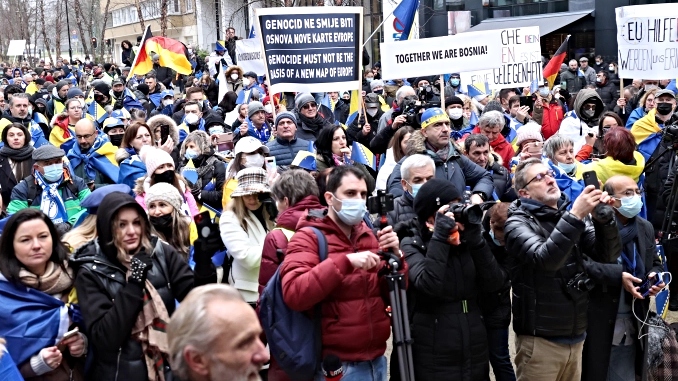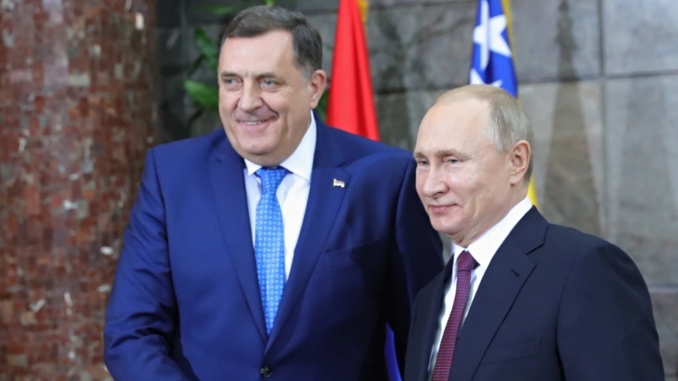Smashed Graves Highlight Romania’s Lingering Anti-Semitism
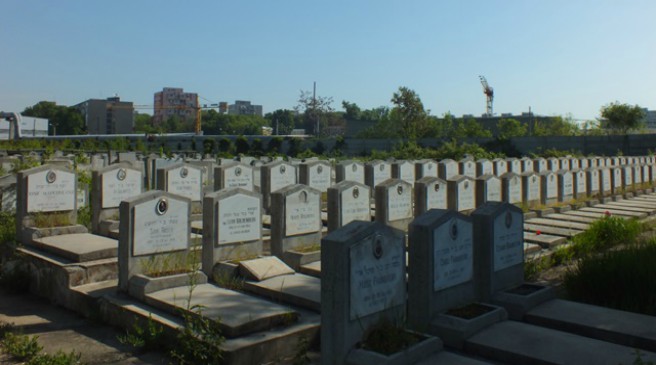
After Jewish graves were vandalized on the night before the Holocaust Remembrance Day, Romania’s small Jewish community wonders if enough is being done to address traditional hostility to Jews.
Sergiu Rogojinski, administrator of one of the Jewish cemeteries of Bucharest, is in his seventies and has seen many incidents of vandalism over the years.
He walks slowly along the alley in the oldest part of the Giurgiului Cemetery, in the south of Bucharest, and points at the graves that were destroyed the night before Holocaust Remembrance Day, on April 24.
Headstones in the cemetery are overturned and broken. One lies in the area where the victims of the 1941 pogrom in Bucharest are buried.
“They [the police] say this is the work of a few young boys. They confessed. They’re young boys, not very educated and didn’t seem to know much,” he explains.
“But they destroyed some of the most valuable monuments, some of which are quite far apart and heavy for 13-year-olds to break,” he added.
The Giurgiului Jewish Cemetery ought to be safe. Surrounded by a tall concrete wall it has two private guards at both gates. By day, visitors can only enter after explaining the purpose of their visit. The cemetery is also guarded at night. But only two guards cannot watch the entire 16 hectares and monitor all 35,000 graves.
Every few years, someone breaks in and desecrates graves. It happened in 2008. Rogojinski says the destroyed monuments are often old, unique and cannot be repaired.
Most of the time, the perpetrators are teenagers or even children. When police catch them they charge them with vandalism, motivated by “rebellion,” but they are never charged with antisemitism.
Anti-Semitism is no longer obvious in Romania because the remaining Jewish community remaining is so small, Rogojinski explained. “Anti-Semitism has been left without an object of hatred,” he said.
The Federation of Jewish Communities in Romania, FCER, and the 2011 census, show only around 3,271 Jews still live in Romania.
Back in 1930s, Romania had one of the biggest Jewish communities in Europe, numbering around 800,000, according to official records.
During the Second World War, the then government under Marshal Ion Antonescu, one of Hitler’s allies, killed over 340,000 Jews in Romania and in territories controlled by the Romanian army.
Many more died of maltreatment in the concentration camps or on the death trains being sent to the camps.
Anti-Semitic violence predated the war and the Holocaust in Romania, however.
In the 1920s, university students formed anti-Semitic groups like the Legion of Archangel Michael, which carried out Romania’s first pogrom in 1927, in the western city of Oradea, in Transylvania.
In the mid-1930s, the Fascist Iron Guard movement claimed responsibility for the assassination of several Jewish figures. In 1937, an anti-Semitic law stripped a third of the country’s Jews of their citizenship.
In June 1941, Romanian and German army officers, supported by Iron Guard police, rounded up Jews in the eastern city of Iasi and in Bucharest, destroyed synagogues and houses and killed 13,000 people.
After this horrific history, most of the surviving Jews in Romania emigrated to Israel after the war.
The new communist government reportedly received cash in exchange for every Jew allowed to leave the country.
Even though most Jews have long gone, Jewish cemeteries continue to be vandalized in Romania, however.
Last summer, the Bucharest State Jewish Theatre was also broken into and its costumes and decor damaged.
“Because Jews in Romania are not as present in public life, anti-Semitism is also not very obvious,” Maximillian Marco Katz, founder of the Center for Monitoring and Combating Antisemitism in Romania, told BIRN.
But, he says it still exists in people’s mentality and when incidents like vandalizing a cemetery happen, the mainstream media fails to react the same way that it reacts when there is a similar act against Romanians.
Anti-Semitism in Romania is active online:
According to a report by the Center for Monitoring and Combating Antisemitism, released in 2014, 65 websites in Romanian, blogs and online publications, spread anti-semitism, and 27 are constantly updated.
Many of them praise people such as Antonescu or Fascist movements and promote their articles on social media. Writers are often anonymous.
Even members of the academic establishment as well as politicians and journalists openly deny the Holocaust and spread ultra-nationalist ideas.
The Fascist Legion of Archangel Michael is active again in Romania; in 2013, it asked the Bucharest Municipality for permission to stage a public event. In 2017 it still has a website.
After the event, members of the group took pictures of themselves performing the Nazi salute in front of state institutions, including ministries and the Supreme Courts, as well as the Elie Wiesel National Institute for the Study of Holocaust.
Law against anti-Semites not enforced:
Romania first banned Holocaust denial in 2002, as a reaction to a growing movement to rehabilitate Antonescu, who was executed as a war criminal in 1946. A government decree punished Holocaust denial with up to six years in prison.
One year later, however, Social Democrat Party spokesperson Dan Sova repeated that no Holocaust had occurred within modern Romania’s borders.
“Most Romanians believe the Holocaust happened, but many still think Romanians did not perpetrate it,” Liviu Rotman, a historian at the University of Bucharest, told the Jewish Telegraphic Agency in 2014.
“To them it was the Hungarians or the Germans, but never Romanians, despite a wealth of evidence.”
Anti-semitism shows up in key moments, as in 2015, when Romania debated outlawing Fascist, racist and xenophobic organizations as well as symbols.
It also amended the 2002 a decree, specifically pointing out that Holocaust denial – not just Nazi German crimes but also those of the Romanian fascists – would be punished.
The debate was especially heated because the Elie Wiesel Institute for the Study of Holocaust actively contributed to drafting the law together with the National Liberal Party.
Orthodox publications wrote many articles criticizing the law because many Romanian cultural personalities between the two world wars, including poets, writers as well as priests and monks, were sympathizers, supporters or members of the Archangel Michael Legion.
The Elie Wiesel Institute itself has been criticized in nationalist circles for pressuring the municipality of Bacau to withdraw the honorary citizenship of a member of the Legion who participated in the 1941 pogroms and died in a communist prison in 1952.
It was also criticized for pressuring the authorities to remove a statue of the Romanian philosopher and politician Mircea Vulcanescu, a member of Antonescu’s government and Romania’s negotiator with Hitler’s Reich.
Katz, a descendent of one of the victims of the 1941 pogrom in Bucharest, says that during the past 15 years governments have improved in terms of recognizing the Holocaust.
But he says there is still a lot of work to be done at the level of people’s mentality.
Romania has now come up with a Holocaust manual to be used in schools. It set up an Institute for the Study of Holocaust and inaugurated a Memorial of the Holocaust in Bucharest in 2009.
“I call these “the flags,” Katz told BIRN. “Whenever we talk about anti-Semitism in Romania, they [the government] put up the ‘flags’ to show things have been improving.”
But the 2015 law is still not enforced, and Katz believes that if there is no real punishment of anti-Semitic statements and acts, there will be no improvement in education either.
He also says it is problematic that history is generally taught with a nationalistic framework, which is an obstacle to educating the young about the Holocaust and the survival of anti-Semitism.
Back in the cemetery in Giurgiului, Rogojinski agrees that the problem has a lot to do with education.
“Even nowadays Romanians still use pejorative words when they talk about Jews. Many are not even aware that they’re using pejorative words. This is Romania, what can we do?” he asks.
Source: Balkan Insight


